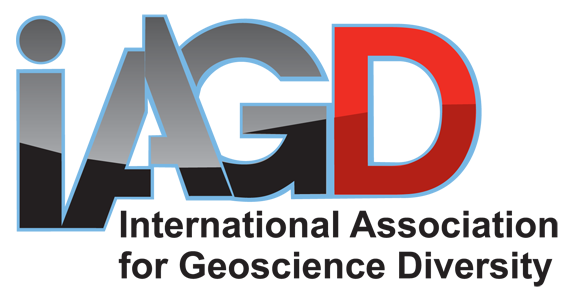Tagged: research jobs, research opportunities, research project opening, research project opportunities, research projects
- This topic has 0 replies, 1 voice, and was last updated 7 years, 11 months ago by
 Chris Atchison.
Chris Atchison.
-
AuthorPosts
-
-
October 12, 2015 at 6:25 PM #2745
Seeking Students to Participate in a New Research Project on Inclusive Geoscience Field Experiences
Are you interested in participating in both national and international field-based research? Current geoscience students are being recruited to participate in a new research project.
Geoscience students with mobility disabilities are especially encouraged to participate!
The International Association for Geoscience Diversity (IAGD) and the Department of Geology and Environmental Science at James Madison University are excited to announce a new research project focused on improving access and inclusion in geoscience field-based learning environments for students with disabilities. The Engaging Students in Inclusive Geoscience Field Experiences via Onsite-Remote Partnerships project, led by Dr. Steven Whitmeyer (JMU), Dr. Christopher Atchison (UC), Dr. Declan DePaor (ODU), and Dr. Jennifer Piatek (CCSU), is a two-year project that will study the impact of audio-visual communication technologies in creating access in remote field-based learning environments for collaborating students with and without physical disabilities.
The project team is currently seeking TWO cohorts of geoscience students: one group of six (6) students with mobility disabilities and one group of six (6) without. Students will each pair with a student from the other cohort during the project.
All students must be geoscience majors. Preference will be given to undergraduate students with limited field experience.
How long is the project?
The time commitment for this active research project will be two years, ending in the fall of 2017.
Where are we going?
Year 1: Arizona, May 9-15, 2016. Students will participate in active research at exciting field sites including Arizona’s Grand Canyon, Barringer Meteorite Crater, and San Francisco Volcanic Fields.
Year 2: Ireland, May 16-26, 2017 (tentative). Students will continue their participation in the research study at multiple field sites in western Ireland.
What will I be doing?
Each two-person team will participate in all field experiences and exercises during the two summers of the project: there will be a one-week field experience during each summer of the project. Students will be encouraged to participate in conference presentations of project results, and will be invited to participate in the culminating field trip at the GSA meeting in Seattle in November 2017.
These field experiences will not count for course credit, but the first-hand opportunities will provide you with field-based skills and experiences in addition to what you learn in courses at your university. Paired teams of students will collect field data and perform analyses both in the field and remotely in real-time via web-linked tablets and other interactive mobile devices. Real-time video and audio communication, both student-to-student and student-to-faculty, will be facilitated through cutting-edge wearable technologies (e.g. Google Glass and Sony’s SmartEyeglass).
What’s in it for me?
All students selected to participate in this research study will receive a $1,000 stipend for each of the two years of the project, along with travel funds to the field sites during both years. Students who participate in the 2017 field trip in Seattle during the GSA Annual Meeting will receive an additional $750 stipend.
To apply to participate in this two-year research study, please fill out this application form.
Anticipated selection date will be January 31, 2016. Accepted students will be notified during the first week of February.
If you have any questions, or to receive more information, please contact Dr. Steven Whitmeyer at whitmesj@jmu.edu or Dr. Chris Atchison at christopher.atchison@uc.edu.
This project is funded by the National Science Foundation (Award 1540652). Any opinions, findings, and conclusions or recommendations expressed in this material are those of the author(s) and do not necessarily reflect the views of the National Science Foundation.
-
-
AuthorPosts
- You must be logged in to reply to this topic.





